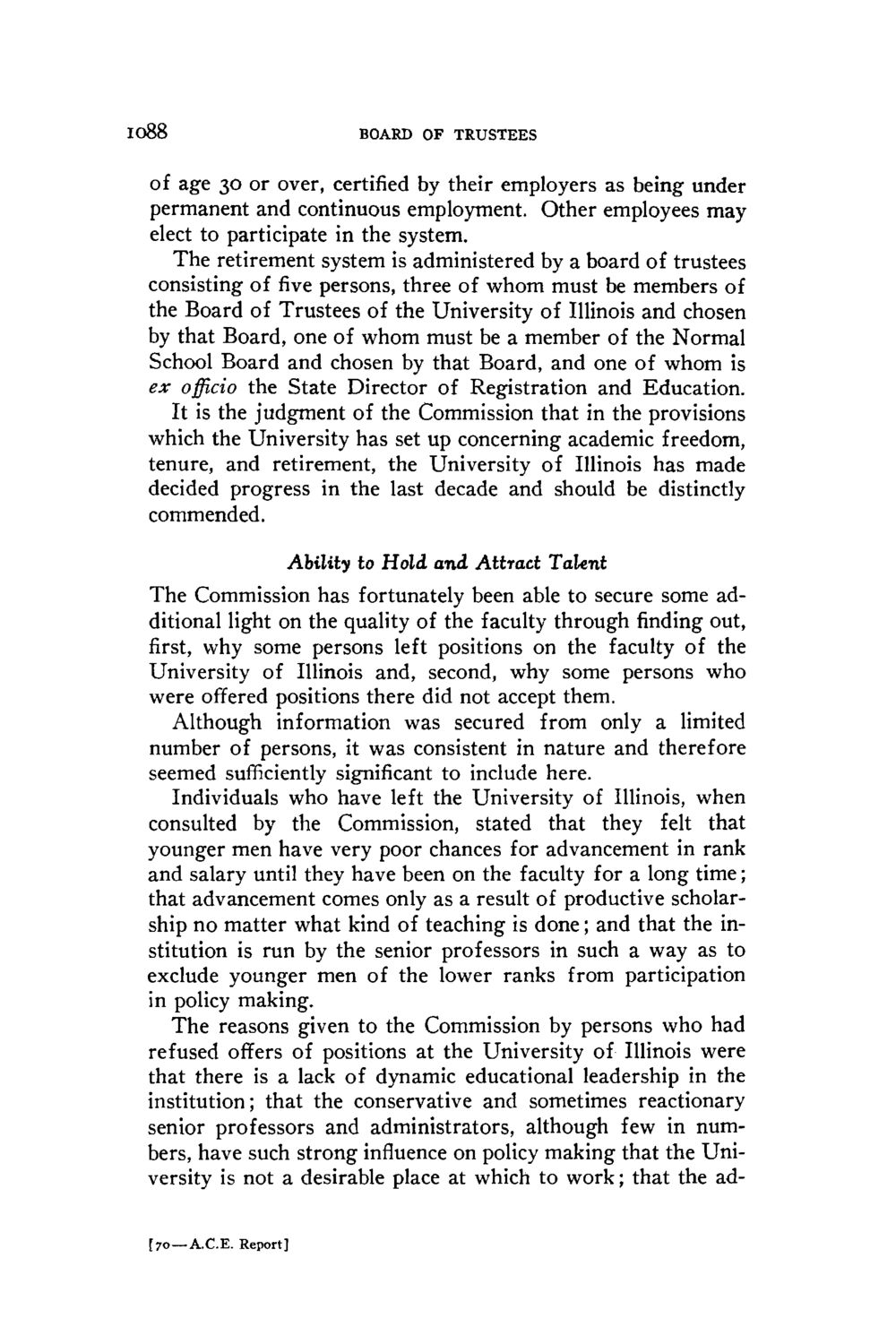| |
| |
Caption: Board of Trustees Minutes - 1944
This is a reduced-resolution page image for fast online browsing.

EXTRACTED TEXT FROM PAGE:
io88 BOARD OF TRUSTEES of age 30 or over, certified by their employers as being under permanent and continuous employment. Other employees may elect to participate in the system. The retirement system is administered by a board of trustees consisting of five persons, three of whom must be members of the Board of Trustees of the University of Illinois and chosen by that Board, one of whom must be a member of the Normal School Board and chosen by that Board, and one of whom is ex officio the State Director of Registration and Education. It is the judgment of the Commission that in the provisions which the University has set up concerning academic freedom, tenure, and retirement, the University of Illinois has made decided progress in the last decade and should be distinctly commended. Ability to Hold and Attract Talent The Commission has fortunately been able to secure some additional light on the quality of the faculty through finding out, first, why some persons left positions on the faculty of the University of Illinois and, second, why some persons who were offered positions there did not accept them. Although information was secured from only a limited number of persons, it was consistent in nature and therefore seemed sufficiently significant to include here. Individuals who have left the University of Illinois, when consulted by the Commission, stated that they felt that younger men have very poor chances for advancement in rank and salary until they have been on the faculty for a long time; that advancement comes only as a result of productive scholarship no matter what kind of teaching is done; and that the institution is run by the senior professors in such a way as to exclude younger men of the lower ranks from participation in policy making. The reasons given to the Commission by persons who had refused offers of positions at the University of Illinois were that there is a lack of dynamic educational leadership in the institution; that the conservative and sometimes reactionary senior professors and administrators, although few in numbers, have such strong influence on policy making that the University is not a desirable place at which to work; that the ad- [70—A.C.E. Report]
| |